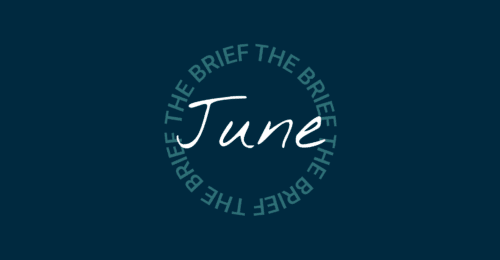
July

Deadline looms for destruction of COVID-19 vaccination information in Victoria
Employers in Victoria have until 11 August 2023 to destroy any COVID-19 vaccination information they have recorded or held under the Occupational Health and Safety Amendment (COVID-19 Vaccination Information) Regulations 2022 (Regulations).
Following the removal of vaccination requirements contained in ‘pandemic orders’, the Regulations, allowed organisations to collect, record, hold, and use COVID-19 vaccination information for a period of 12-months, after which, the data must be destroyed after 30 days. Under the regulations, ‘COVID-19 vaccination information’ includes information as to whether a specified person has:
- received any dose of a vaccination against COVID-19, and if so, the date on which the person received the dose (or if the person has received more than one dose, every date on which the person received those doses); or
- not been able to receive a dose, or further dose, of a vaccination against COVID-19 due to a medical contraindication or an acute medical illness.
For an employer, this information may include letters from a registered medical practitioner, records from the Australia Immunisation Register or certificates issued by Services Australia stating that an affected person is unable to receive a vaccination against COVID-19.
While the Regulations do not specify how the information is to be destroyed, It is recommended that:
- employers notify affected persons about what information will be destroyed; and
- information is destroyed in a secure and confidential manner and avoids disclosure to a third party.
After 11 August 2023, any COVID-19 vaccination information kept by an employer will be subject to the Privacy Act 1988 (Cth) and Health Records Act 2001 (Vic).
If you have questions regarding the use of COVID-19 vaccination information in Victoria please contact NRA Legal for a confidential discussion on 1800 572 679.
South Australia proposes criminalisation of industrial manslaughter
The South Australian government has introduced the Work Health and Safety (Industrial Manslaughter) Amendment Bill (Bill) with the intention of criminalising industrial manslaughter.
Under the Bill, individuals and companies that engage in grossly reckless or negligent misconduct in breach of the Work Health and Safety Act 2012 (SA) individuals will face up to 20-years imprisonment and companies will face up to $18 million in penalties.
If passed, the Bill will ultimately bring South Australia in line with other states and territories such as Queensland, Victoria, Western Australia, and the Australian Capital Territory which have already criminalised the offence.
Bank fails to consult on transition away from WFH
Earlier this month, the Finance Sector Union (FSU) lodged an application with the Fair Work Commission (Commission) to challenge the Commonwealth Bank of Australia’s (CBA) requirement for remote workers to return to the office for at least half of each month.
The FSU claims that the CBA failed to consult with its employees prior to issuing the mandate, in line with their enterprise agreement. According to FSU national secretary, Julia Angrisano, remote work was a proven sustainable model and the mandate to return to the office will interfere with family life and will mean employees incur commuting costs.
In justifying their decision, the CBA has outlined that a hybrid working model would not only allow employees to ‘use the office for collaborative projects, face-to-face meetings and team connection’, but would see employees ‘retain flexibility’ by spending some days remote for uninterrupted work and better work/life balance.
Ms Angrisano foreshadowed that the FSU would be requesting the Commission to order the CBA to offer impacted employees flexible working options on ‘mutually agreeable terms’.
If you have questions regarding your obligations to consult employees on a major workplace change in your business, please contact NRA Legal for a confidential discussion on 1800 572 679.
BHP to appeal significant public holiday ruling
Just months after a significant public holiday ruling against BHP’s internal labour hire business was handed down by the Federal Court of Australia, BHP has launched a High Court appeal.
Earlier this year in March, the full bench Federal Court ruled that BHP’s internal labour hire provider, OS MCAP Pty Ltd, was in breach of its obligations under section 114 of the Fair Work Act 2009 (Cth), when they required a number of employees to work Christmas Day and Boxing Day in 2019, without proper consultation.
In its submissions to the High Court, BHP has outlined that Federal Court’s decision cause ‘serious adverse effects on the ability of employers confidently to roster employees to work on public holidays’.
As the High Court considers whether or not to hear OS MCAP Pty Ltd’s appeal, no court dates have been determined.
Some zombie agreements granted an extension
The Fair Work Commission (Commission) has provided ISS Health Services (ISS) an almost two-year extension on their 2004 zombie agreement after accepting that it provides significantly better pay than the relevant award, and that negotiation had already commenced.
Changes implemented under the Secure Jobs Better Pay legislation mandated that enterprise agreements made prior to the commencement of the Fair Work Act 2009 are to automatically sunset on 7 December 2023, unless an extension is granted.
In this case, ISS was able to be granted an extension where they had commenced bargaining for a new agreement and that the current agreement provided employees were better off than if they were under the applicable modern award.
Application by ISS Health Services Pty Ltd [2023] FWCFB 12 (7 July 2023)
In contrast, the Full Bench of the Commission has rejected a bid to extend a 2009 zombie agreement of a scaffolding company. In that case, Suncoast Scaffolding bid to extend their agreement by 4-years arguing that their workers would be better off under it than the relevant building or clerks awards, and that their workers were satisfied with the deal. The Commission held that workers would not be better off, and an extension would not otherwise be appropriate.
In rejecting the extension, the Commission held that while ordinary rates of pay were higher than the applicable awards, workers would likely be worse off where they were required to work 50 hour weeks, did not receive overtime or allowances, and casual employees only had a two-hour minimum shift engagement (where the applicable awards require at least 3 or 4 hour engagements).
Suncoast Scaffold Pty Ltd as trustee for The Warren Family Trust [2023] FWCFB 105 (16 June 2023)
Whether employees under a zombie agreement are better off overall has been clarified in a recent decision. Tinmarl Pty Ltd, a mango farm, made an application for their 2009 enterprise agreement to be extended by two years. Tinmarl told the Commission that they employed 10 workers from the Pacific Islands to pick mangos each year for six-eight weeks from late December to January and return home in April. With the sunsetting of zombie agreements in December, the mango farm submitted that their workers, who lived in remote areas with limited communication options would be unable to participate in bargaining.
The Commission bench found that Tinmarl would be “unreasonably impacted” by the timing of the sunsetting agreement. The Commission accepted that they did not, “believe it possible for Tinmarl to enter an enterprise agreement to replace their existing agreement prior to making offer to the seasonal workers”.
Ultimately, the Commission bench held that, “reasonableness must be assessed by reference to the ‘circumstances’ of the case, that is, the relevant matters and conditions accompanying the case” and subsequently that an extension until the end of the picking season in April would be reasonable, refusing the application for a two-year extension.
FWC to hear first intractable bargaining declaration
The Fair Work Commission (Commission) will hear the first bid for an intractable bargaining declaration by Virgin Australia Regional Airlines (VARA). An Intractable declaration provides for the Commission to decide a dispute about a term of an enterprise agreement if bargaining representatives cannot resolve a dispute. In this case VARA has engaged in two years of bargaining, without an agreement being reached.
The matter will be heard in Sydney on 21 and 24 July 2023.
Pit crew operator sacked after filing false reports
The Fair Work Commission (Commission) has upheld the decision to terminate an airline worker after he made false reports about his colleagues which created ‘psychosocial risks’.
The employee, a pit crew operator, was dismissed after his employer, Virgin Australia, received numerous false reports from him about the conduct of his colleagues. These included accusing a colleague of ‘completely disoriented and distracted driving’ when he in fact was at fault, overreporting an exchange with a colleague as ‘aggressive’, another as ‘trying to assault him’, a third of ‘assaulting his wife’, and that the Sydney Airport was trying to frame him for terrorism, all of which were grossly exaggerated or untrue.
The Commission also heard that the pit crew operator had also, ‘bordered on workplace sexual harassment’ when he repeatedly sent unwanted messaged and Facebook friend requests to a young female worker. In upholding the dismissal, the Commission provided:
“[The pit crew operator] engaged in a repeated pattern of behaviours that was inconsistent with his duty to Virgin Australia to act honestly and treat others with dignity, courtesy, and respect” McKinnon C expressed. “The making of false and/or exaggerated reports about other operators and leading hands was not only likely to undermine the trust of his colleagues, but also created risks to their health and safety, including psychosocial safety."



